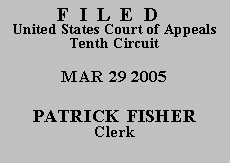 UNITED STATES COURT OF APPEALS
UNITED STATES COURT OF APPEALS
 UNITED STATES COURT OF APPEALS
UNITED STATES COURT OF APPEALS
|
UNITED STATES OF AMERICA, MAXIMINO MELERO-FILETO, |
|
A petitioner may not appeal the denial of habeas relief under 28 U.S.C. § 2255 unless a COA is granted. 28 U.S.C. § 2253(c)(1)(B). We will issue a COA "only if the applicant has made a substantial showing of the denial of a constitutional right." Id. § 2253(c)(2). This standard requires the petitioner to demonstrate "that reasonable jurists could debate whether (or, for that matter, agree that) the petition should have been resolved in a different manner or that the issues presented were adequate to deserve encouragement to proceed further." Slack v. McDaniel, 529 U.S. 473, 484 (2000) (quotation marks omitted). Because the District Court denied Mr. Melero-Fileto's application for a COA, we analyze whether a COA should have been granted based on the two issues raised in his § 2255 petition.
Mr. Melero-Fileto first contends that, under Blakely, the sentencing judge violated his Sixth Amendment rights by increasing his sentence based on facts not admitted by him or found by a jury beyond a reasonable doubt. See Blakely, 124 S. Ct. at 2537. Blakely, however, was decided after Mr. Melero-Fileto's sentence became final on direct review, and it does not apply retroactively to initial § 2255 petitions. Price v. United States, -- F.3d --, 2005 WL 535361 at *5 (10th Cir. Mar. 8, 2005).
Mr. Melero-Fileto also claims that his conviction under 18 U.S.C. § 924(c)(1)(A)(i) is unconstitutional due to ineffective assistance of counsel. Under § 924(c)(1)(A)(i), a person who commits a drug trafficking crime may also be indicted for any of three specific firearms activities related to the drug crime. The statute states that "any person who, during and in relation to any . . . drug trafficking crime . . . uses or carries a firearm . . . or who, in furtherance of any such crime, possesses a firearm" is subject to a mandatory additional minimum five-year sentence. This provision therefore applies to a person who (1) uses a firearm during and in relation to any drug trafficking crime; (2) carries a firearm during and in relation to any drug trafficking crime; or (3) possesses a firearm in furtherance of any drug trafficking crime.
In his habeas petition, Mr. Melero-Fileto argues exclusively that there was no evidence that, at the time he was arrested and found to be in possession of heroin, he used a firearm, intended to use a firearm, or was in proximate possession of a firearm. He points out that at the time of his arrest, his firearm was located in his car more than 300 yards away. He argues that his attorney's failure to move for dismissal of this count in the indictment, based on this alleged lack of evidence supporting a conviction under § 924(c)(1)(A)(i), constitutes ineffective assistance of counsel in violation of his Sixth Amendment rights.
As the District Court pointed out, however, Mr. Melero-Fileto pleaded guilty to carrying a firearm during and in relation to a drug trafficking crime. He did not plead guilty to using a firearm during and in relation to a drug trafficking crime or possessing a firearm in furtherance of such crime. And, under the "carry" prong of § 924(c)(1)(A)(i), the Government need not establish that the firearm was within Mr. Melero-Fileto's "effortless reach" at the time of his arrest in order to obtain a conviction. United States v. Miller, 84 F.3d 1244, 1259 (10th Cir. 1996). To the contrary, it need only prove that Mr. Melero-Fileto "transported a firearm in a vehicle and that he had actual or constructive possession of the firearm while doing so," id., and that the transportation occurred "in relation to a drug trafficking offense," United States v. Holland, 116 F.3d 1353, 1359 (10th Cir. 1997). See also United States v. Lindsey, 389 F.3d 1334, 1338 (10th Cir. 2004) (holding that "[t]he 'carry' prong of § 924(c)(1)(A) has two elements: (1) possession of the weapon through the exercise of dominion or control; and (2) transportation of the weapon.").
Even construing Mr. Melero-Fileto's petition liberally, see Estelle v. Gamble, 429 U.S. 97, 106 (1976), nothing in it takes issue with whether he transported the gun in the car prior to the heroin transaction, whether he possessed the firearm at that time, or whether doing so occurred "during and in relation to" the heroin sale. As such, Mr. Melero-Fileto's allegations do not state a claim for ineffective assistance of counsel based on his attorney's failure to move to dismiss the count of the indictment charging him with carrying a firearm under § 924(c)(1)(A)(i). See Paine v. Massie, 339 F.3d 1194, 1200 (10th Cir. 2003) (discussing the necessary elements for an ineffective assistance of counsel claim under Strickland v. Washington, 466 U.S. 668 (1984)).
Mr. Melero-Fileto counters that his arguments regarding the possession of a firearm bear on his conviction insofar as he also pleaded guilty to possession of a firearm with an obliterated serial number, 18 U.S.C. § 922(k); possession of a firearm by an illegal alien, 18 U.S.C. §§ 2, 922(g)(5); and felon in possession of a firearm, 18 U.S.C. §§ 922(g)(1), 924(a)(2). While this is true, it is clear that Mr. Melero-Fileto's § 2255 motion only contests his conviction under 18 U.S.C. § 924(c)(1)(A)(i). Therefore, his arguments relating to the possession of a firearm are simply not applicable to his § 2255 petition or to his motion for a COA.
Reasonable jurists could not debate that Mr. Melero-Fileto failed to present a claim that he was denied his Sixth Amendment rights to a trial by jury or to the effective assistance of counsel. We therefore DENY his application for a COA
on these issues.
ENTERED FOR THE COURT,
Deanell Reece Tacha
Chief Circuit Judge